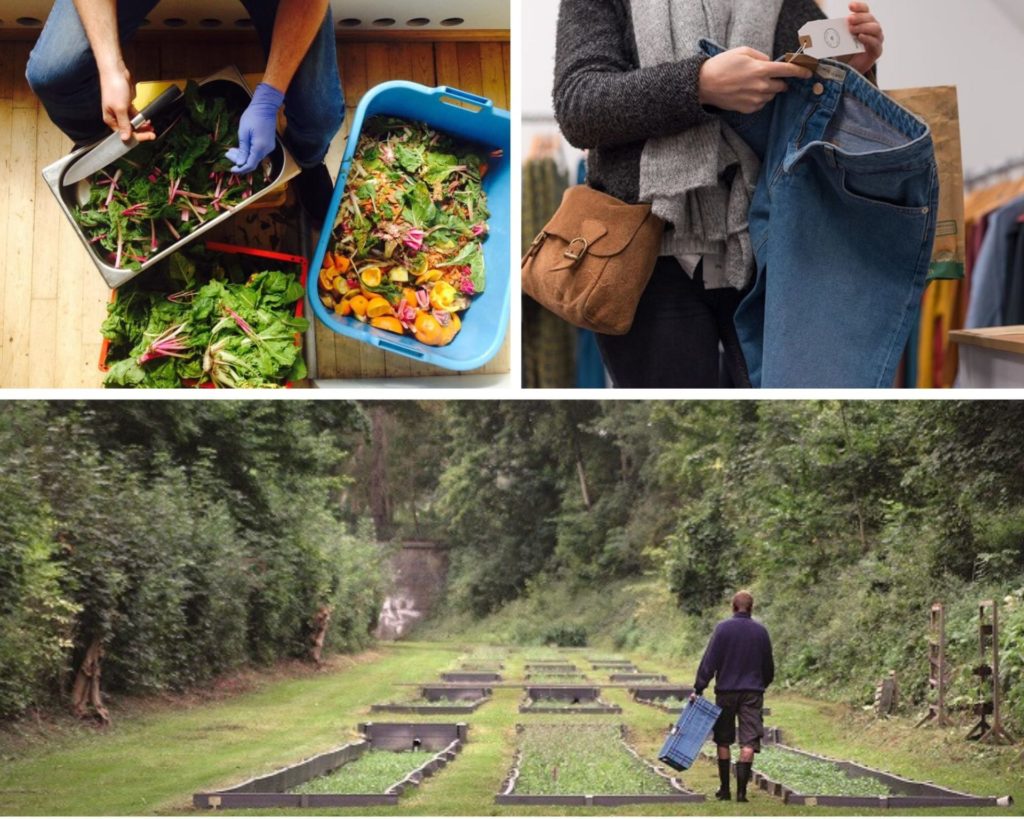The end of 2019 brings to a close a decade of collective awakening to the effects of global warming, with 2020 kicking off a decisive period to achieve climate and sustainability goals.
As world leaders faced criticism for shying away from ambitious sustainability and climate policies, ordinary citizens the world over increasingly pushed for change — and Brussels has not been an exception.
From sustainable shops to anti-food waste non-profits and urban gardens, here’s an overview of some of the projects, businesses and initiatives carrying Brussels into a new and greener decade.
DIY communities
Brussels boasts a large number of non-profits and collectives seeking to promote greener living and community ties through a number of hands-on initiatives.
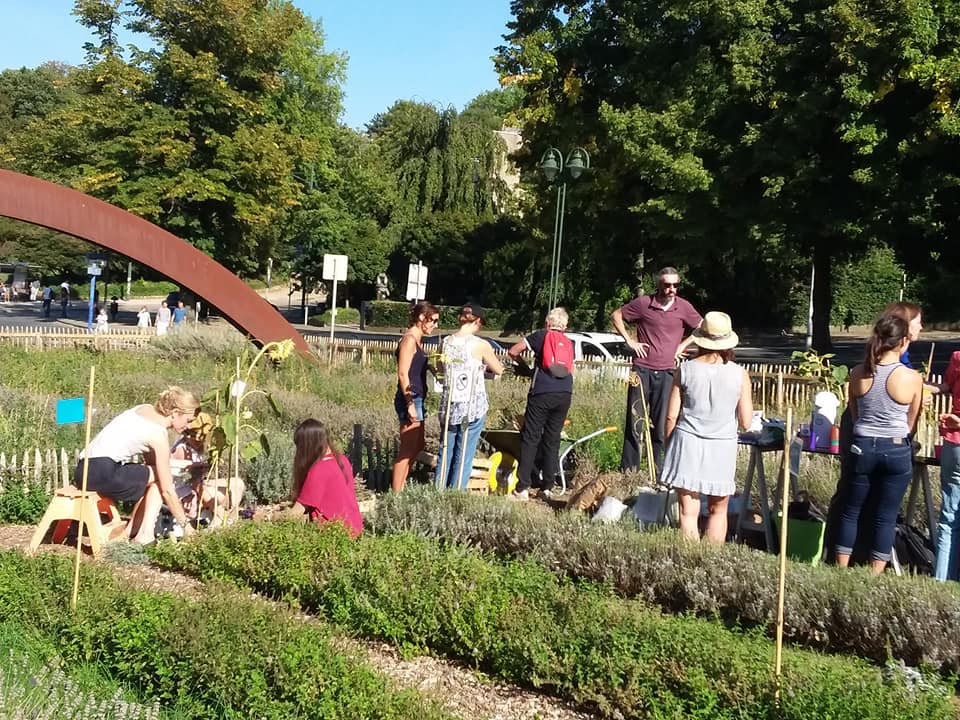
Credit: Jardin Essentiel/Facebook
In Uccle, a neighbourhood project known as Les Incroyables Comestibles promotes the creation of urban vegetable plots. Launched by a group of school parents, the group has developed into an active community which producing and sharing locally-grown produce. Similar initiatives have begun in other parts of Brussels, including the plant pots around Ixelles' Saint-Boniface quarter, or the Jardin Essentiel in Forest, where neighbourhood volunteers grow and tend to medicinal plants.
In Flagey, Fais-Le Toi Même seeks to promote self-sufficiency and counter current rates of mass consumption by providing the space and resources to anyone seeking to craft, repair or build something themselves.
1000Bruxellesentransition is a collective of citizens working together on a range of projects to promote sustainable living practices and social cohesion — from promoting zero-waste and running repair cafés to organising free markets, film viewings or debates, a grassroots approach to rethinking our every day lives is at the heart of the project.
Rethinking waste
With a staggering amount of food thrown away in Brussels each year, there are several initiatives bringing food and products set to be discarded back into the stalls.
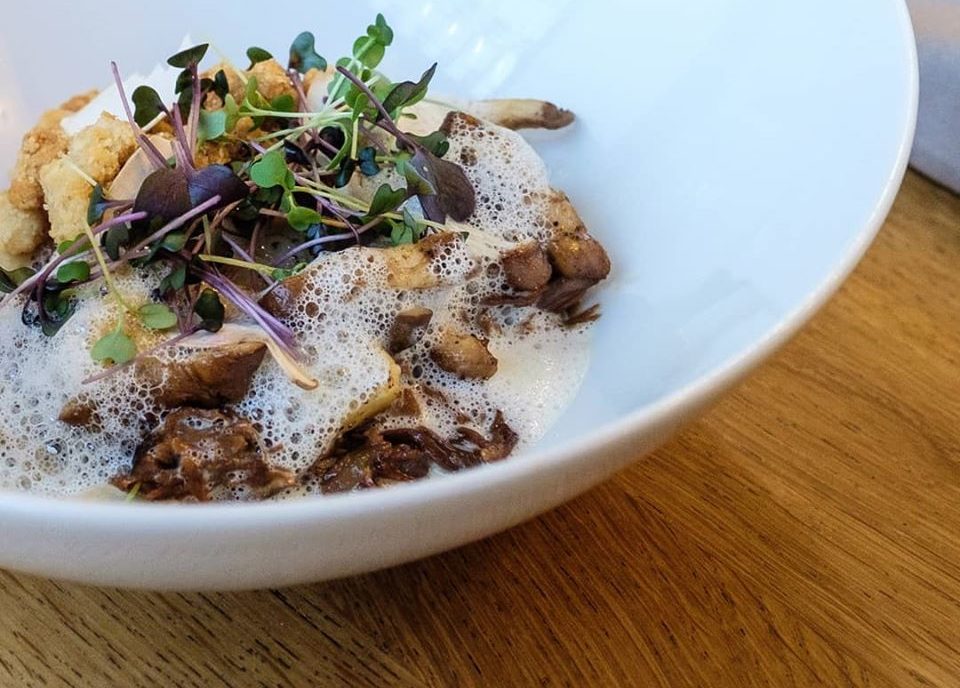
Credit: Le Champignon de Bruxelles/Facebook
No Javel! is a non-profit which combats both food-waste and social exclusion by organising a pop-up farmer's markets several times a week, distributing discarded produce and groceries for free or against a small, voluntary donation, giving priority to people with low or no incomes. A similar initiative in Auderghem, called COLLECTMET, collects and redistributes unsold items in the Auderghem food market, one of the largest in Brussels.
Putting an innovative spin on a quintessentially Belgian item, Le Champignon de Bruxelles' own fight against food waste sees it transform beer byproducts into organic and Michelin-star-worthy mushrooms. What started as a small-scale project in 2014 soon grew into a fully-fledged business, with co-founder Hadrien Velge saying they now supply their mushrooms to hundreds of establishments in Brussels —including the Michelin-starred Le Bon Bon or Kamo— and to organic food retailers all throughout Belgium.
Eating in, eating out
The organic and sustainable food market has boomed significantly in recent years in Brussels, putting locally-produced food front and centre.
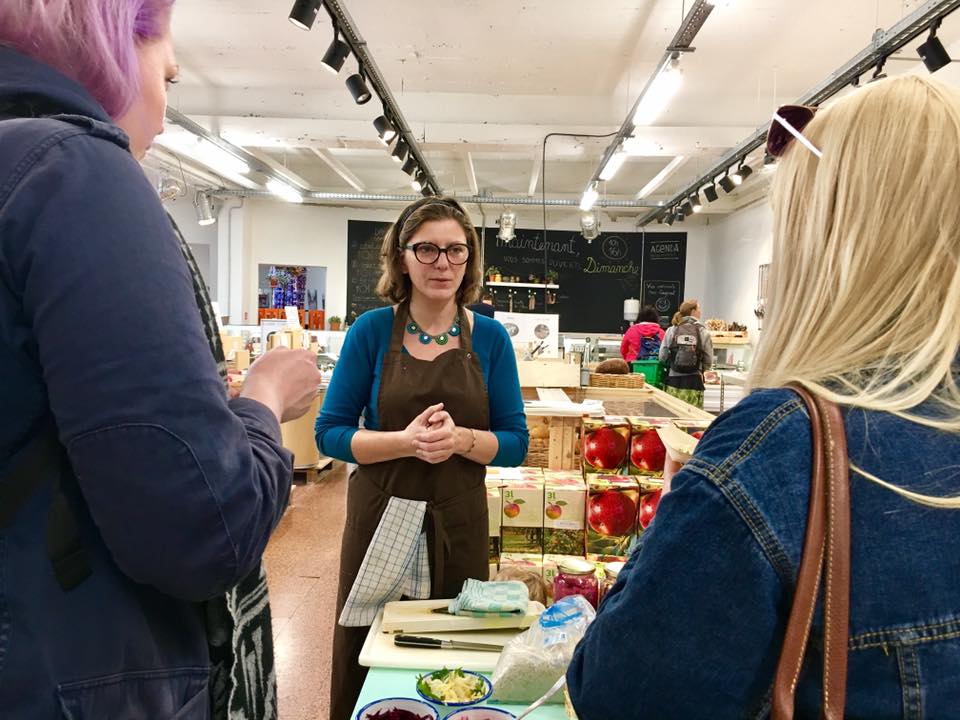
Credit: BelgoMarkt/Facebook
Groceries: Nestled in a former industrial complex in Brussels 1000, the Marché Boeren follows a "from the farm to your plate" approach, working only with local producers in their weekly farmer's market. Also in Brussels 1000, Marché Des Tanneurs offers a range of organic food choices, ranging from fruits and vegetables to dairy products, honey, oil and wine. In Ixelles, BelgoMarkt promotes short supply chains by offering seasonal products grown or manufactured exclusively in Belgium. For those struggling to make it to the supermarket after work, La Ruche Qui Dit Oui delivers food baskets from local producers and to different collection points, while a number of stock and organic supermarkets have popped up all across the city, like Färm, The Barn, Stock or Bio Vrac.
Restaurants: Both Le Local (Brussels 1000) and Brut (Ixelles) offer meals promoting the Belgian terroir and short supply chains, with most of their plates prepared with products from nearby farms. In Ixelles, urban canteen Refresh not only works exclusively with local and seasonal produce but also employs people seeking training opportunities, allowing them to learn and develop new skills in the kitchen. Saint-Gilles coffeeshop Le Dillens adapts their menu to the seasons and works with local suppliers, including for their coffee, provided by Brussels roasters OR Coffee (Brussels 1000 and Etterbeek), which in turn, sources their coffee directly from producers.
Greener shopping
The fashion industry is among the most resource-intensive industries in the world, with several reports recording its damages on the environment as well as on the welfare of workers it employs. In Brussels, a growing number of shops are seeking to offer consumers a more sustainable shopping alternative.
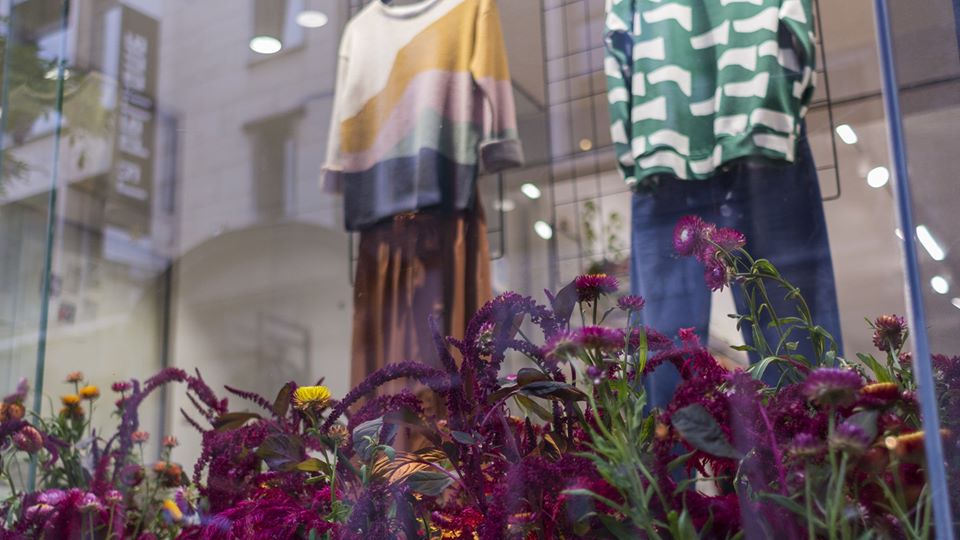
Credit: Wonderloop/Facebook
Wonderloop founder Héléna Van Aelst chose to open an ethical fashion boutique out of her own frustration as a consumer over the "lack of alternatives to fast fashion in Brussels." Her small shop in Brussels 1000 offers a wide range of clothing and accessory brands from Belgium and Europe, which in turn all follow both ecologically and socially responsible standards. "Ethical fashion is clearly a growing sector in Brussels, there is a clear demand from consumers and I'm sure the sector will continue to grow, and we will continue to contribute to it at our own pace," Van Aelst said.
In Ixelles, a boutique called WeCo recently opened its doors and its founders equally seek to promote slow fashion alternatives and of highlighting the need to swap quantity over quality by stocking up on durable and high-quality garments. In Brussels 1000, concept store Effet Mérité puts local designers and craft-makers on display, going from handmade jewellery to house decorations and clothing designed by creatives in Brussels, while near the Grand-Place, alternative souvenirs shop MANNEKE offers locally-crafted memorabilia, ranging from Brussels-brewed beers to artisanal souvenirs, including some made from recycled materials.
Gabriela Galindo
The Brussels Times

